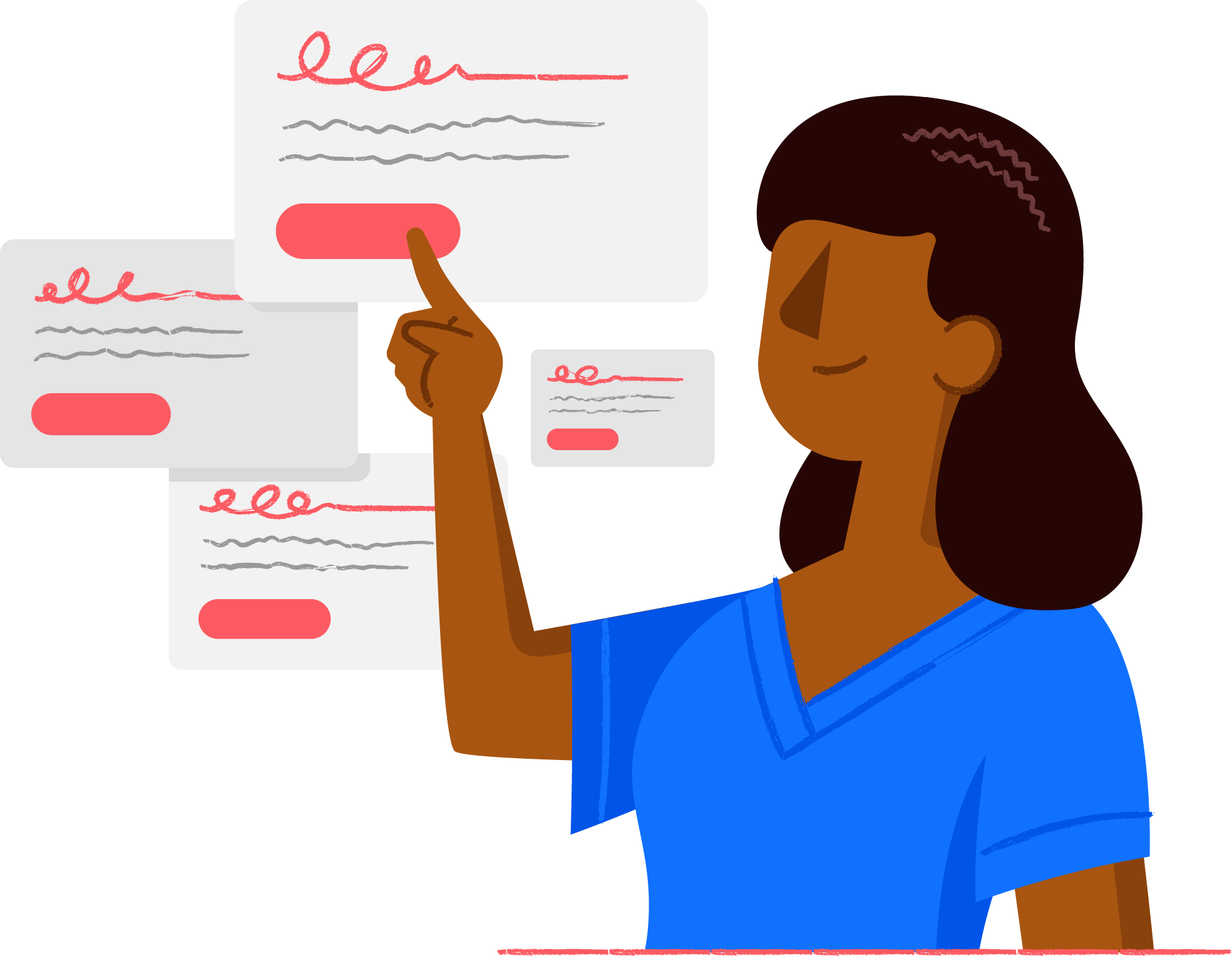Ruth is a mental health blogger, and an English student. We chatted to her to gather her thoughts about mental illness in the work place.…
You left school a few years ago. How did you find it, coping with your mental health issues as you grew up in that environment?
A burden. I got called ’Mad', 'crazy' or ‘psycho’. There were more. You get stigmatised and called all kinds of derogatory things.

Search Jobs
1000s of jobs for Nurses & Care Professionals. No.1 for UK nursing, care & healthcare jobs.
Search JobsYou left school and entered the work place. Did that put an end to the remarks?
No. The school isn't the only environment where mental health sufferers have to hide, in fear of being called any of the three words above.
Can you give an example of what it meant to you, suffering from mental health in the work place?
It starts before you even step through the office door! It even starts before you get a job interview!
I found the job application a struggle! I mean, should I tick the box: 'Do you consider yourself to have a disability’?

What Do You Think?
Ask questions, comment and like this article below! Share your thoughts, add your opinion in the comments below.
CommentWould you tick it?
Did you know that, if you answer yes, you are only considered to have a disability if your day-to-day tasks are affected. It’s difficult to know if that will be the case or not, before you’re actually IN the work-place.
How was it, once you started work?
Fine, until I had my first one-to-one with my line manager. I worked at a fast-food establishment. I found her line of questioning very personal and felt she was trying to establish something about me, not just the work I was doing.
She mentioned that I was rather 'away with it’ and asked if I was taking drugs. I cried, murmuring that it was just my docile personality to blame. I told her I was taking medication for anxiety and she looked at me shocked.
I couldn’t help feeling ‘judged’ after that episode, and wondered if any of the other staff ever found out.
All rather humiliating.
And, yes, I felt at the time that I’d been discriminated against somehow. After all, it was why I hadn’t ticked the disability box in the first place: unless it was going to clearly affect my ability to do the job I’d prefer to not have to make it a subject I would feel judged by.

Become A Community Contributor
Share your story to help and inspire others. Write or create a video about your job or your opinions!
ContributeIs there no law that protects people from this in the workplace?
Despite The Equality Act 2010 I think discrimination in the workplace still affects many employees on a day-to-day basis.
There are two main types of discrimination: indirect and direct. The charity, Re-Think, describes direct discrimination as “where someone treats you less positively than other people because of your disability”.
Indirect discrimination is "where there is a rule, criteria or practice that applies to everyone but that disadvantages disabled people”.
How did the episode leave you feeling?
Many people have this idea of mentally ill people that just doesn’t describe most sufferers. We still have a definition of mental illness that paints a picture of a disturbed or even dangerous person.
It’s a stereotype that we really need to eliminate.I'm still not sure whether my experience classifies as discrimination or not. But I certainly felt I was treated differently to the other employees afterwards.
I think if we continue to raise awareness of mental illness in the workplace we will gradually, slowly, help society work out the issues, stigmas and discriminatory attitudes that still prevail.
Thanks to Ruth for her time. If you’d like to find out more, you can read her blog here: Ruth Hudson’s blog






About this contributor
socialcare.co.uk
Our guest writers at socialcare.co.uk inform you of their own experiences of working in social care, offer their expertise of the industry, and talk about current affairs and issues within social care. Their roles vary from Support Workers, to Dementia Carers to Probation Officers and anything in between, but they all share the same passion and dedication to social care - thats why they take time out of their hectic lives to write for you.
More by this contributorWant to get involved in the discussion?
Log In Subscribe to comment